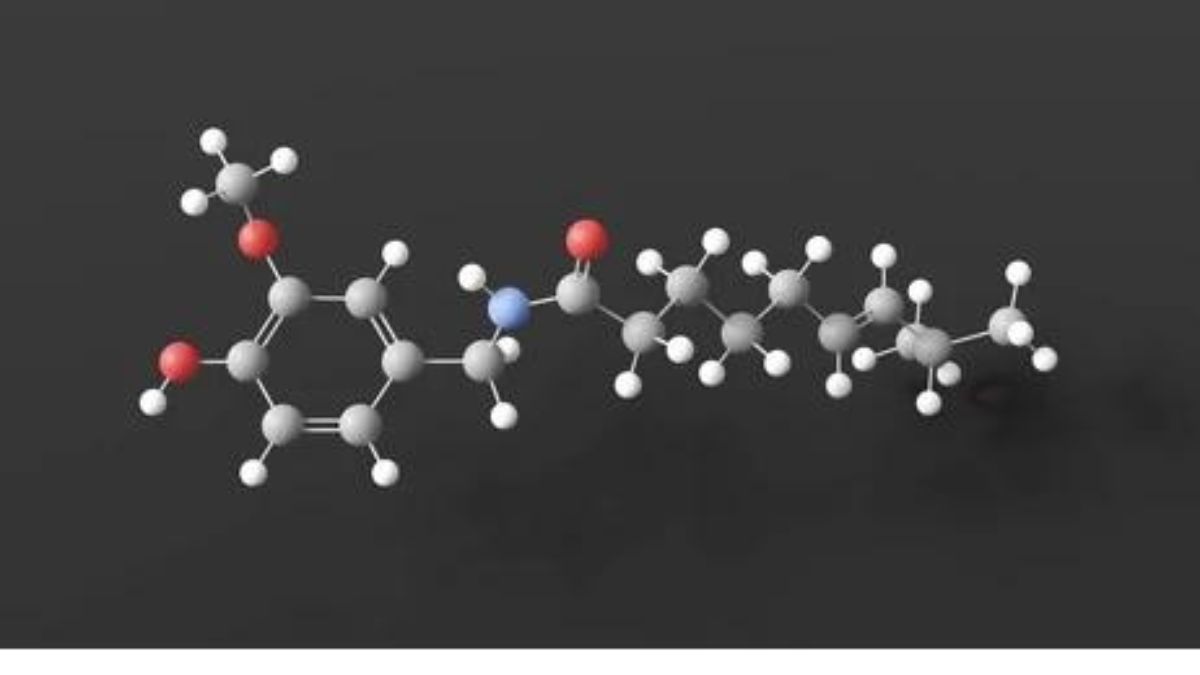HEALTH
The Role of 6530-20-1 Metabolites in Pharmaceutical Development

In the ever-evolving landscape of pharmaceutical development, the focus on metabolites is gaining momentum. Among these compounds, 6530-20-1 metabolites stand out due to their unique properties and significant implications for drug discovery. As researchers delve deeper into understanding how these metabolites interact within biological systems, they uncover a treasure trove of information that could lead to groundbreaking advancements in medicine.
Imagine harnessing nature’s own chemistry—transforming raw substances into powerful therapeutic agents. The role of 6530-20-1 metabolites in this process not only shapes our approach to drug design but also enhances our ability to predict treatment outcomes and improve patient care. This intriguing field invites exploration as we uncover the intricate dance between metabolism and pharmacology, revealing new possibilities that lie ahead in healthcare innovation.
How are 6530-20-1 Metabolites formed?
The formation of 6530-20-1 metabolites begins with the metabolic processes that occur in living organisms. When a compound enters the body, it undergoes enzymatic reactions primarily in the liver.
These reactions modify the original structure through oxidation, reduction, or hydrolysis. The enzymes involved are crucial as they determine how efficiently and effectively these transformations take place.
As a result of these biochemical activities, various metabolites emerge, each exhibiting distinct properties and biological activities. Some may be active forms that retain therapeutic benefits; others could potentially be inactive or even harmful.
This dynamic process is influenced by numerous factors including genetics, age, diet, and overall health status of an individual. Understanding this formation is essential for pharmaceutical research aimed at optimizing drug efficacy and safety profiles.
You may like also:Culinary Delights: What to Eat When You Visit Grenblis
The Role of 6530-20-1 Metabolites in Drug Discovery and Development
The role of 6530-20-1 metabolites in drug discovery and development is increasingly recognized. These metabolites can indicate how a compound behaves within biological systems, providing insights into efficacy and safety.
During the early stages of drug design, understanding these metabolites helps researchers predict how potential drugs will be processed by the body. This knowledge assists in refining lead compounds to enhance their therapeutic profiles.
Moreover, analyzing allows scientists to identify biomarkers for disease states or treatment responses. Such discoveries pave the way for targeted therapies tailored to individual patient needs.
Additionally, metabolite profiling contributes to better pharmacokinetic assessments. It informs dosage adjustments and minimizes adverse effects during clinical trials—essential factors that can determine a drug’s success or failure on the market.
Advantages of Using 6530-20-1 Metabolites in Pharmaceuticals
Using 6530-20-1 metabolites in pharmaceuticals offers numerous advantages that can enhance drug development. These metabolites often exhibit improved pharmacological properties, making them better candidates for therapeutic applications.
One key benefit is their ability to provide more accurate representations of human metabolism. By utilizing these metabolites, researchers can predict how drugs will interact within the body more effectively.
Additionally, the presence of can lead to reduced toxicity profiles. This is crucial as safety remains a top priority in pharmaceutical development.
Moreover, they may also improve bioavailability. Enhanced absorption rates ensure that medications reach their target sites efficiently.
These factors collectively make not just valuable but essential in designing safer and more effective drugs for various medical conditions.
Challenges and Limitations of Incorporating 6530-20-1 Metabolites in Drug Development
Incorporating into drug development presents several challenges. One significant hurdle is the variability in metabolite formation across different biological systems. This inconsistency can lead to unpredictable results during testing.
Moreover, the analytical methods required to identify and quantify these metabolites are often complex and time-consuming. Researchers may struggle with establishing standardized protocols, making it difficult to compare findings across studies.
Regulatory hurdles also play a role. The approval process for drugs utilizing novel metabolites can be lengthy due to stringent safety assessments. This adds an extra layer of complexity for pharmaceutical companies aiming to innovate.
There’s the challenge of integrating these metabolites into existing therapeutic frameworks effectively. Understanding their pharmacokinetic properties alongside potential interactions remains a critical area requiring further exploration before widespread adoption in clinical practice can occur.
Conclusion:
The exploration of showcases their pivotal role in pharmaceutical innovation. Understanding these compounds can pave the way for breakthroughs in drug efficacy and safety.
As researchers delve deeper, the complex interactions between metabolites and biological systems are becoming clearer. This knowledge opens doors to more targeted therapies and personalized medicine.
Challenges remain, particularly in standardizing methods for metabolite analysis. However, advancements in technology continue to enhance our capabilities.
Looking ahead, integrating into drug development could redefine treatment paradigms. The potential benefits are vast, promising a future where medications are tailored specifically to individual metabolic profiles.
Continued research will be essential to unlock all possibilities that lie within these fascinating compounds. Each discovery brings us closer to optimizing therapeutic approaches for various conditions.
FAQ’s:
What are 6530-20-1 metabolites?
Refer to the biochemical compounds formed when the substance with the identifier 6530-20-1 undergoes metabolic processes within living organisms. These compounds can play significant roles in pharmacological effects.
Why are 6530-20-1 metabolites important for drug development?
These metabolites provide critical insights into how a drug might behave in vivo. Understanding their formation and function helps optimize drug formulations and assess safety profiles.
How does the formation of 6530-20-1 metabolites occur?
Metabolites arise from enzymatic reactions that modify drugs, often involving phase I (oxidation/reduction) and phase II (conjugation) pathways. This transformation affects bioavailability, activity, and toxicity.
What advantages do 6530-20-1 metabolites offer over traditional pharmaceuticals?
Utilizing these specific metabolites can enhance therapeutic outcomes by improving efficacy while potentially reducing side effects through targeted action mechanisms based on metabolic pathways.
Are there any challenges associated with using 6530–20–1 metabolites in pharmaceuticals?
Yes, some challenges include variability in individual metabolism which may lead to inconsistent results across patient populations. Additionally, isolating sufficient quantities for research or commercial use can be complex.
Where can I find more information about 6530–20–1 metabolite research?
You can explore scientific journals focused on pharmacology or databases dedicated to drug development studies that often publish cutting-edge findings related to specific compounds like those identified as 6530–20–1.
HEALTH
Sip and Solve: A Fun Journey Through the Cold Yogurt Drink Crossword

Imagine sitting back with a refreshing cold yogurt drink in hand, the perfect blend of tangy and creamy flavors. Now, picture immersing yourself in the delightful challenge of a crossword puzzle designed specifically around this delicious beverage! The Cold Yogurt Drink Crossword invites you to sip and solve, merging culinary enjoyment with cognitive stimulation. Whether you’re an avid puzzler or just looking for a fun twist on your usual routine, this unique crossword offers an engaging way to explore the world of cold yogurt drinks while keeping your brain sharp. Let’s dive into this exciting journey together!
History of the Crossword Puzzle
The crossword puzzle has a captivating history that dates back to the early 20th century. It burst onto the scene in December 1913, thanks to Arthur Wynne, a journalist for the New York World. His creation was initially dubbed the “Word-Cross,” featuring straightforward clues and a simple grid layout.
As it gained popularity, variations emerged across newspapers worldwide. By the 1920s, crosswords became a staple in American culture. They evolved from basic wordplay into intricate puzzles challenging even seasoned solvers.
During World War II, they served as both entertainment and morale boosters for troops. The rise of digital media further transformed crosswords; now enthusiasts can solve them on various platforms anytime.
This delightful brain teaser continues to fascinate people today with its blend of wit and knowledge. Each new puzzle invites solvers into an ever-evolving world where language meets creativity.
Benefits of Solving Puzzles and Games for Brain Health
Solving puzzles and games is a fantastic way to give your brain a workout. Engaging with challenging activities can enhance cognitive function, keeping your mind sharp.
When you tackle crosswords or Sudoku, you stimulate problem-solving skills. This mental exercise improves memory retention and boosts creativity.
Moreover, focusing on these tasks reduces stress levels. Immersing yourself in a puzzle allows for mindfulness that calms the mind and promotes relaxation.
Regularly engaging in brain games can also delay aging effects on cognition. Studies suggest that such activities may lower the risk of dementia by maintaining neural connections.
Solving puzzles often encourages social interaction when done with friends or family. These shared experiences foster bonds while stimulating intellectual discussions about strategies and answers.
Popular Variations of the Cold Yogurt Drink Crossword
There are several exciting variations of the Cold Yogurt Drink Crossword that keep enthusiasts on their toes. Each version brings its own unique flavor.
One popular adaptation is the regional theme crossword. Here, clues revolve around local cold yogurt drinks and ingredients found in different cultures. This variation helps players discover new beverages from around the globe.
Another fun twist involves timed challenges. Participants race against the clock to solve puzzles, adding an adrenaline rush to a relaxing activity like sipping a cold drink.
Some crosswords even incorporate trivia about yogurt’s health benefits or historical facts related to dairy products. Players not only enjoy solving but also learn something new with each puzzle they complete.
Engaging with these variations can enhance your experience as you sip your favorite cold yogurt drink while unraveling clues that spark curiosity and joy in every square filled!
Tips for Solving the Puzzle
Start by scanning the entire crossword grid. Look for clues that jump out at you, especially those with fewer letters.
Next, tackle the easiest clues first. Filling in familiar words can provide a solid foundation to build upon.
Use pencil and erasers if you’re working on paper. It’s okay to make mistakes; they help you learn.
Consider writing down synonyms or related terms for tricky clues. Sometimes brainstorming opens new pathways in your mind.
Don’t hesitate to take breaks when feeling stuck. A fresh perspective often leads to breakthroughs.
Enjoy the process! The goal is not just completion but also having fun while sipping on your favorite cold yogurt drink as you solve away.
Fun Facts About Cold Yogurt Drinks Around the World
Cold yogurt drinks have a fascinating global presence. In India, the popular “lassi” is a refreshing blend of yogurt, water, and spices. It’s often enjoyed after spicy meals to cool the palate.
In the Middle East, you’ll find “doogh,” a savory drink made with yogurt and mint. This tangy beverage pairs perfectly with grilled meats and rice dishes.
Moving to Southeast Asia, countries like Thailand offer unique versions too. They create sweetened yogurt drinks infused with tropical fruits for an exquisite treat.
In Mexico, “atole” can be found in various forms that include yogurt, giving it a creamy texture that contrasts beautifully with traditional flavors.
Each culture has its own twist on cold yogurt drinks, making them not only delicious but also diverse in taste and preparation methods worldwide.
Why You Should Grab a Cold Yogurt Drink and Solve a Crossword Today!
Imagine a warm afternoon, your favorite spot in the sun, and a refreshing cold yogurt drink in hand. The creamy texture and tangy flavor instantly uplift your mood.
Now picture adding a crossword puzzle to this scene. Solving clues can be both relaxing and stimulating for your brain. It’s like exercise for your mind while you sip on that delightful drink.
These moments of enjoyment are perfect for unwinding after a busy day or sparking creativity during downtime. Each sip fuels you with probiotics, promoting gut health as each word encourages cognitive function.
Grab that cool treat, find a cozy corner, and challenge yourself with the Cold Yogurt Drink Crossword today! It’s an experience that tantalizes the taste buds while keeping your mind engaged—a perfect blend of pleasure and productivity awaits.
Conclusion
Engaging with a Cold Yogurt Drink Crossword can transform your day. It’s not just about the puzzle; it’s an experience that invigorates your mind.
Imagine sipping a refreshing yogurt drink as you tackle each clue. The coolness of the beverage complements the mental challenge beautifully.
Crosswords stimulate cognitive functions, promoting critical thinking and problem-solving skills. Each sip fuels your brain for those tricky clues.
Exploring global variations of cold yogurt drinks adds another layer to this fun activity. Different cultures offer unique flavors and textures, enhancing your enjoyment while solving puzzles.
So why wait? Grab that delicious drink, embrace the crossword’s challenges, and indulge in a delightful journey that combines flavor and intellect!
FAQ’s
What is a cold yogurt drink?
A cold yogurt drink is typically made from fermented milk or yogurt combined with water, fruits, or spices. It’s refreshing and often enjoyed in various cultures around the world.
How do I make my own cold yogurt drink at home?
Making a cold yogurt drink at home is quite simple. Blend plain or flavored yogurt with water, ice cubes, and any desired flavorings like fruit or honey to create a smooth beverage.
Are there health benefits to drinking cold yogurt drinks?
Yes! Cold yogurt drinks are packed with probiotics that promote gut health. They also provide calcium and protein while being low in calories—making them an excellent choice for healthy snacking.
Can crossword puzzles improve memory?
Absolutely! Solving crossword puzzles engages different areas of the brain associated with vocabulary recall, problem-solving skills, and even memory retention.
Where can I find more variations of the Cold Yogurt Drink Crossword?
You can discover more variations by looking online on puzzle platforms dedicated to crosswords or through specialty magazines that focus on food-related subjects.
These FAQs should provide clarity whether you’re sipping on a cool beverage while solving puzzles or simply curious about these tasty treats. Embrace both activities together for an enriching experience today!
HEALTH
Unlocking Insights: A Deep Dive into the://vital-mag.net blog

Welcome to the vibrant world of the://vital-mag.net blog, where knowledge meets creativity. This is not just another online magazine; it’s a dynamic platform that dives deep into topics ranging from lifestyle and health to technology and culture. With each article, readers embark on a journey filled with insights, inspiration, and thought-provoking ideas.
Curious about what makes this blog stand out? The story behind its inception is as captivating as its content. Whether you’re seeking expert advice or simply looking for fresh perspectives, you’ve come to the right place. Let’s unlock some fascinating insights together!
The Story Behind the Blog
The story behind the://vital-mag.net blog is one of passion and purpose. It began as a small platform for sharing knowledge and insights about vital topics that often go overlooked.
A group of dedicated writers came together, driven by a shared vision to create meaningful content. They wanted to spark conversations and inspire readers from all walks of life.
As the blog evolved, it became a treasure trove of information. Each article reflects an authentic voice, aiming to connect with audiences on deeper levels.
Contributors bring diverse backgrounds and experiences, enriching the narrative landscape. This mosaic of perspectives makes every visit unique.
Readers can feel the energy in the posts—an invitation to explore new ideas and engage with pressing issues. The heart behind this endeavor lies in fostering understanding within communities everywhere.
The Team Behind the Content
Behind every great blog is a talented team dedicated to delivering quality content. At the://vital-mag.net blog, this philosophy shines through.
Each member brings unique expertise and passion. Writers, editors, researchers—everyone plays a crucial role in bringing fresh perspectives.
Collaboration fuels creativity. Regular brainstorming sessions spark innovative ideas that resonate with readers. The energy within the team fosters an environment where curiosity thrives.
Additionally, guest contributors enrich the dialogue. Industry professionals share their insights, making the content diverse and relevant.
Feedback drives improvement. The team consistently assesses audience preferences to refine their approach and enhance engagement.
With such dedication and talent at play, it’s no wonder why the://vital-mag.net blog stands out as a beacon of insightful discourse in its field.
The Most Popular Topics and Articles
When browsing the://vital-mag.net blog, certain topics stand out time and again. Readers flock to articles about health trends, technology innovations, and lifestyle tips. These subjects resonate deeply with those seeking fresh insights.
Health-related content often garners attention. From nutrition advice to mental well-being strategies, it’s clear that readers value practical guidance for a healthier life.
Meanwhile, technology captures the curiosity of many visitors. Articles covering emerging tech and gadget reviews spark lively discussions in the comments section.
Lifestyle pieces also shine brightly on this platform. Whether it’s travel hacks or personal finance tips, these articles provide valuable takeaways that readers appreciate.
Each popular topic reflects a blend of current interests and timeless wisdom, making the://vital-mag.net blog an essential resource for diverse audiences searching for knowledge and inspiration.
Exclusive Interviews with Industry Experts
The://vital-mag.net blog takes pride in featuring exclusive interviews with industry experts. These conversations offer readers a rare glimpse into the minds of thought leaders and innovators.
Each interview is crafted to uncover valuable insights, unique perspectives, and practical advice. Whether it’s a tech guru or a health advocate, our featured guests share their journeys and experiences.
Readers can expect engaging discussions that dive deep into current trends. The expert opinions often highlight emerging challenges and opportunities within various sectors.
These interviews are not just informative; they inspire action. By connecting readers directly with influential voices, we help bridge the gap between knowledge and application.
Stay tuned for upcoming features as we continue to connect you with those shaping industries today!
Interactive Features and Engaging Content
The interactive features of the://vital-mag.net blog truly set it apart. Readers don’t just skim through articles; they actively participate in their digital experience.
Polls, quizzes, and comment sections invite visitors to share opinions and insights. This fosters a community vibe where discussions flourish.
Visual content like infographics enhances understanding while keeping things visually appealing. It caters to different learning styles and keeps readers engaged longer.
Moreover, exclusive live chats with authors or industry experts create an intimate atmosphere for deeper connections. Followers can ask questions directly, making information more accessible.
Interactive storytelling captivates audiences too. It’s not just about reading but experiencing narratives that resonate on various levels—making each visit memorable and unique.
Conclusion
The exploration of the://vital-mag.net blog reveals a treasure trove of insights. Each article invites readers to engage and interact with fresh ideas.
From interviews with industry leaders to captivating topics, there’s always something new on offer. The dynamic content keeps audiences coming back for more.
What sets this blog apart is its commitment to quality and relevance. It’s not just about what’s trending; it’s also about depth and authenticity in every post.
Readers can expect an enriching experience that stimulates curiosity. Whether you’re seeking knowledge or inspiration, the://vital-mag.net blog has you covered.
As you delve deeper into the content, you’ll uncover layers of information waiting to be explored further. The journey through this vibrant platform is sure to spark your imagination and broaden your horizons.
FAQ’s
What kind of topics does the://vital-mag.net blog cover?
The blog explores a wide range of subjects, including health, technology, lifestyle trends, and more. It aims to provide valuable insights that resonate with readers from various backgrounds.
Who writes for the://vital-mag.net blog?
A dedicated team of experienced writers contributes to the content. Each member brings unique expertise and perspectives, ensuring a diverse array of articles.
How often is new content published on the site?
Readers can expect fresh content regularly. The team works diligently to keep up with current trends and deliver timely information.
Can I interact with other readers or authors on the site?
Yes! The platform encourages engagement through comments and discussions. Readers are invited to share their thoughts and connect over shared interests.
Is there an option for guest contributions?
Absolutely! If you’re passionate about writing and have something valuable to share, check out their submission guidelines for potential collaboration opportunities.
By exploring these aspects, you’ll find that visiting the://vital-mag.net blog offers not just information but also an engaging community eager to share ideas and knowledge.
HEALTH
Unveiling nnrm28: What You Need to Know

Are you ready to dive into the world of nnrm28? This intriguing compound has been making waves in health and wellness circles, capturing the attention of enthusiasts eager for its potential benefits. Whether you’re a curious explorer or someone looking for new ways to enhance your daily routine, understanding nnrm28 could open doors to improved well-being. From its fascinating background to practical tips on incorporating it into your life, there’s much to uncover. Let’s embark on this journey together!
The History and Development of nnrm28
nnrm28 has a fascinating origin story that dates back to the early 2000s. Researchers sought to create a formula that would enhance overall wellness, aiming for a blend of natural ingredients.
Throughout its development, various scientists collaborated to refine the formulation. They conducted numerous studies, seeking optimal ratios for efficacy and safety. This iterative process led to several prototypes before reaching the final product we know today.
As interest grew in health supplements during this period, nnrm28 emerged as a standout option due to its unique composition. Its creators focused on integrating modern science with traditional herbal wisdom, appealing to both skeptics and enthusiasts alike.
Market introduction was strategic. It targeted consumers who prioritize holistic approaches in their daily lives. With time, nnrm28 gained traction and became synonymous with enhanced vitality among many users across diverse demographics.
You may like also:How TheWeeklySpoon.com Inspires Home Cooks to Experiment in the Kitchen
Key Features and Benefits of nnrm28
nnrm28 stands out due to its impressive formulation. Each ingredient is carefully selected to enhance effectiveness, making it a reliable choice for many.
One of the standout features is its quick absorption rate. Users often report feeling results sooner compared to similar products on the market. This means you can get back to your daily activities without unnecessary delays.
Another significant benefit is its versatility. Whether you’re looking for an energy boost or support during workouts, nnrm28 adapts seamlessly into various lifestyles and routines.
The product also boasts natural ingredients, appealing to those who prefer holistic approaches. This aspect resonates with health-conscious consumers seeking quality and safety in their supplements.
Moreover, nnrm28 has garnered positive feedback from users regarding its overall impact on well-being. Many claim improved focus and enhanced stamina after incorporating it regularly into their regimen.
How to Incorporate nnrm28 into Your Daily Routine
Incorporating nnrm28 into your daily routine can be seamless and enjoyable. Start by identifying the best time for you, whether in the morning or evening. Consistency is key.
Consider adding nnrm28 to your breakfast smoothie. Blend it with fruits and a dairy alternative for a nutritious kickstart to your day. You’ll benefit from its properties while enjoying a delicious treat.
If smoothies aren’t your thing, try mixing nnrm28 with yogurt or oatmeal. This combination not only enhances taste but also boosts nutritional value.
For those who prefer beverages, sip on tea infused with nnrm28 throughout the day. It’s an easy way to integrate it into your hydration habits without disrupting your schedule.
Remember to listen to your body as you adjust to this addition. Everyone’s experience will differ, so find what works best for you over time.
Testimonials from Users
Users have shared their experiences with nnrm28, highlighting its transformative effects on their daily lives. Many report increased energy and focus throughout the day.
One user mentioned how incorporating nnrm28 into her morning routine has improved her productivity levels at work. She feels more alert during meetings and tasks seem less daunting.
Another customer emphasized its role in enhancing mood stability. He described feeling balanced and less overwhelmed by stressors that once derailed his progress.
Individuals also appreciate the convenience of adding nnrm28 to smoothies or shakes. This makes it easy to enjoy without disrupting their routines.
These real-life stories illustrate how nnrm28 is making a positive impact, helping users achieve better mental clarity and emotional well-being as part of a holistic approach to health.
Potential Side Effects and Precautions
While nnrm28 offers numerous benefits, it’s crucial to be aware of potential side effects. Users have reported mild gastrointestinal discomfort, including bloating or gas. These symptoms usually subside as your body adjusts.
Some individuals may experience headaches or fatigue initially. This can often occur due to changes in metabolism or hydration levels when incorporating nnrm28 into the diet.
It’s advisable for pregnant or nursing women to consult a healthcare professional before starting any new supplement regimen involving nnrm28.
Individuals with existing medical conditions should also seek advice from their doctor, especially if they are on medication.
Staying hydrated and adhering to recommended dosages can help mitigate some side effects while maximizing benefits. Listening to your body is essential; if you feel unwell after use, consider reducing the dosage or discontinuing it altogether until consulting a healthcare provider for guidance.
Conclusion:
As you explore the world of nnrm28, it becomes clear that this innovative product holds potential for many. Its unique formulation and benefits can enhance everyday life.
With a bit of effort, integrating nnrm28’s into your routine is straightforward. Many users have reported positive changes after consistent use.
Listening to their experiences may inspire your own journey with nnrm28. Their stories showcase diverse applications and outcomes.
It’s essential to stay informed about any possible side effects as well. Knowledge empowers you to make wise choices regarding health products.
Embrace curiosity when considering new supplements like nnrm28’s. This approach helps in discovering what truly works for you and your lifestyle.
FAQ’s:
What is nnrm28?
nnrm28’s is a cutting-edge supplement designed to enhance overall wellness. It focuses on providing essential nutrients that may support various bodily functions.
How does nnrm28 work?
The unique formulation of nnrm28’s combines several key ingredients known for their health benefits. These components work synergistically to promote energy levels, improve mood, and bolster immune defense.
Can anyone take nnrm28?
While many individuals can benefit from nnrm28’s, it’s always best to consult with a healthcare professional before starting any new supplement regimen. This ensures safety and suitability based on individual health needs.
Are there any side effects associated with nnrm28?
Most users report minimal or no side effects when using nnrm28’s as directed. However, some may experience mild digestive discomfort or allergic reactions depending on personal sensitivities.
Where can I purchase nnrm28?
You can find nnrm28’s at select health stores and online retailers. Always ensure you are buying from reputable sources to guarantee product quality.
How long does it take to see results from using nnrm28?
Results vary among users; however, many start noticing improvements within a few weeks of consistent use. Patience is key for optimal results!
-

 HEALTH3 months ago
HEALTH3 months agoUnlocking Insights: A Deep Dive into the://vital-mag.net blog
-

 MUSIC9 months ago
MUSIC9 months agoWhy You Need to Add the Geekzilla Podcast to Your Playlist ASAP
-

 BUSINESS5 months ago
BUSINESS5 months agoThe Ultimate Resource for Users:download metamask tumb
-

 TECHNOLOGY4 months ago
TECHNOLOGY4 months agoWepbound Uncovered: How This Tool Transforms Your Online Experience
-

 BLOG11 months ago
BLOG11 months agoAll You Need to Know About FSI Blog Com: A Comprehensive Guide
-

 ENTERTAINMENT4 months ago
ENTERTAINMENT4 months agoExploring Antarvacna: The Hidden Jewel of Cultural Heritage
-

 HEALTH7 months ago
HEALTH7 months agoHow TheWeeklySpoon.com Inspires Home Cooks to Experiment in the Kitchen
-

 TECHNOLOGY11 months ago
TECHNOLOGY11 months agoCertidor: The Key to Protecting Your Personal Information Online
